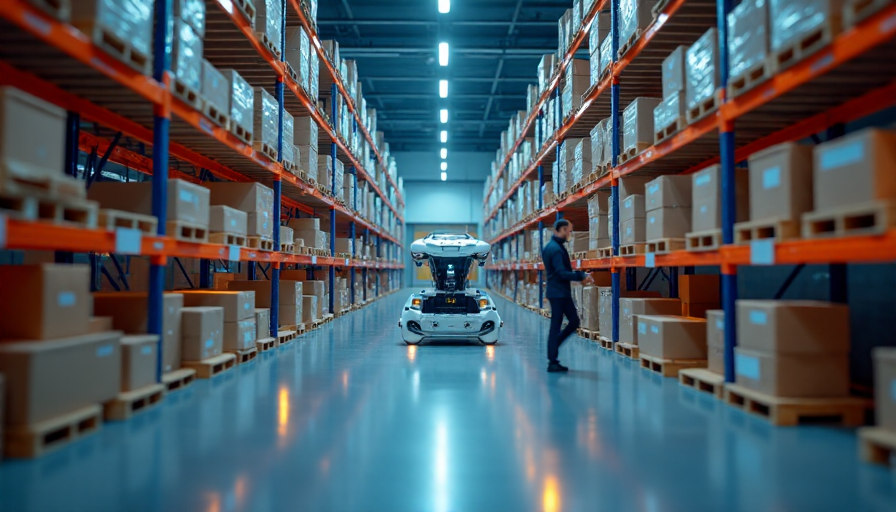
Next-Generation Tech Transforms Global Supply Chains
In an era where speed and convenience are essential, the global supply chain landscape is undergoing a revolutionary shift. Companies are rapidly adopting emerging technologies, such as robotics and artificial intelligence, to meet customer expectations and stay ahead of the competition.
Robotic Revolution in Warehousing
Multinational logistics giant DHL is at the forefront of this change. Javier Bilbao Uzquiano, APAC CEO of DHL Supply Chain, explained during CONVERGE LIVE in Singapore how robotics is reshaping warehouse operations. Robots are not replacing human workers but complementing them by handling laborious tasks like moving heavy pallets, unloading containers, and managing other repetitive activities.
- Increased Flexibility: Autonomous robots now navigate warehouses independently, utilizing heat maps and bottleneck data to improve efficiency, especially during peak periods like Black Friday and Cyber Monday.
- Enhanced Productivity: Automation allows warehouses to quickly adapt to sudden surges in demand without extensive retraining of human staff.
Uzquiano emphasized that the implementation of robotics is a strategic advantage during high-volume events, where the technology provides consistency and speed from the very start of the process.
AI-Driven Food Delivery Innovations
Dubai-based Talabat is another key player transforming its operations through artificial intelligence. The online food ordering service leverages AI's predictive capabilities to analyze user behavior and personalize customer experiences. CEO Tomaso Rodriguez highlighted that AI helps the company understand what individual users are most likely to order by diving deep into data patterns.
- Enhanced Recommendations: By analyzing app activity, Talabat is now able to offer better suggestions and target customers with tailored offers, converting casual browsers into paying customers.
- Exploring Drone and Robot Deliveries: While the company is experimenting with drones and robots for delivery, current local regulations and the clear advantages of human delivery mean that traditional methods still hold significant value.
Rodriguez noted that human interaction remains critical and is unlikely to be replaced by automated systems in the very near future.
Future Implications for Global Logistics
The integration of robotics and AI is not just a trend but a fundamental transformation within the industry. Companies like DHL and Talabat illustrate how technology can complement human efforts to create more agile, efficient, and customer-centric operations. As advancements continue, the balance between human skills and robotic efficiency will likely serve as a model for the future of supply chain management.
This evolution invites both challenges and opportunities, inspiring a reimagined approach to work where precision, responsiveness, and technology-driven insights become the new standard.
From autonomous warehouse robotics to AI-driven customer insights in food delivery, next-generation technologies are reshaping global supply chains and opening new avenues for efficiency and responsiveness.
Note: This publication was rewritten using AI. The content was based on the original source linked above.